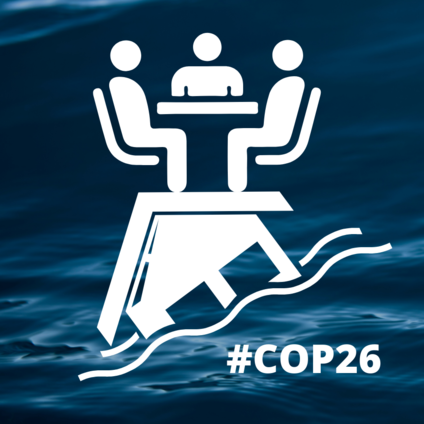
When the gavel dropped on COP26, the resounding echo was one of disappointment. The divisive summit was a showcase on showboating; and a prime example of how countries and industries have the tools needed to address climate change but simply choose not to do so.
In a world where we have done too much to destroy our climate, we are doing far too little to heal it. The rebuttal rhetoric is one of finance, capacity, and patience. It is one that says that the answers needed are too expensive much too soon.
But, we have already done too much for too long. We don't need drastic changes, we need sensible changes to avoid the drastic consequences of climate change.
As I write this, British Columbia - my home - is underwater and affected by an ‘atmospheric river’. Just months ago, it was on fire and experiencing a heat dome that killed hundreds. I was in Australia just before the devastating fire season of 2019, and its subsequent floods. Days ago, I was in a London cafe hearing news about an unprecedented cold snap about to hit the UK.
I was in Glasgow during COP26. It is hard not to have a heavy heart.
Since COP26 ended, I have watched as homes, farms, and highways were devastated by unprecedented weather events in BC. Lives were lost, as were livelihoods. We are now facing a potential fuel shortage, and our main artery to the rest of Canada - the Coquihalla Highway - has been significantly damaged.
This doesn’t consider the effect on biodiversity - including lost salmon habitats - and how much of what we have seen unfold over the last few weeks is directly related to climate change and the impact of deforestation on our landscape.
We are facing the extreme consequences of climate change. Our means of addressing it is not enough. We’ve taken small steps in the right direction, but what we need are sensible leaps.
We need uncomfortable change if we are to avoid a catastrophic future.
We also need to realize that, even if we address the issues we are facing right now, we will still face the consequences of what has and has not been done to curb emissions.
We have already done too much to our climate and too little to address the impact of our influence.
This isn't a message you’ll hear from world leaders, but it is one you’ll hear from the masses. It's one you’ll hear at the protests on the ground and from the scientists who have been raising the alarm about climate change for decades. It’s one you will hear from small nations hit hard by climate change, from Indigenous communities whose ways of life have been disrupted, and from scientists warning about the loss of biodiversity.
Yes, strides have been taken toward green energy and there are communities and countries who are fueled by green power. But, we need to be careful of false narratives and solutions and grandstanding to save-face or sell products.
Carbon offsetting can’t replace actions taken to reduce emissions. Net zero creations often take a ‘burn now, pay later’ approach that increases deforestation, may not actually reduce emissions, and hastens the destruction of the natural world; especially in Indigenous communities.
What is the answer for this? That might be the wrong question. We know the answer is that we need a big change from big world powers. We need them to exceed expectations and not make this a David and Goliath battle. In fact, this should not be a battle between people and politics but rather something that unites us. We need to listen to the experts and actually take the medicine they prescribe; even if it is hard to swallow.
The better question is ‘what can I do?’. If you have the opportunity to learn about climate change, start learning. If you have the ability to vote, vote for conscious climate action. If you have the ears to listen, listen to Indigenous knowledge about how to exist with our environment. If you have the means to do so, support companies who are doing the right thing. If you can march, march safely and so that your voice is heard.
Small steps are still steps - so let’s keep taking them and let's keep picking up the pace. We need leaders to do more to fight climate change and do less to protect the status quo that is literally killing us and our communities.
[From November, 2021]
